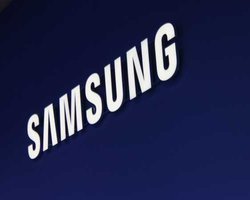Samsung has announced a new AI agent for its devices called ‘Bixby’, a digital voice assistant developed to help consumers have better control of their machines.
Bixby will first appear on the upcoming Galaxy S8 smartphone, expected to be officially unveiled later this month.
A fundamental limitation of modern human-to-machine interface is that consumers are at the mercy of designers, “with an increasingly steep curve that makes learning a new device difficult”, said InJong Rhee, Executive Vice President, Head of R&D, Software and Services in a company press release.
Samsung’s new philosophy to the problem is that machines need to learn and adapt to its users, rather than have humans learn how a machine interacts with the world.
Bixby is the result of using artificial intelligence and deep learning concepts to the core of user interface designs, and it is “fundamentally different” from other voice agents or assistants in the market, such as Apple’s Siri, Amazon’s Alexa, Google Assistant and Microsoft’s Cortana.
“Bixby is an intelligent user interface, emphasis on interface,” Rhee told The Verge.
“A lot of other agents are focused on being knowledgeable, providing answers to fact-based questions, glorified extensions of search. Bixby is capable of developing a new interface to our devices, or devices that are going to host Bixby,” he added.
What can Bixby do?
It’s best to think of Bixby as an AI assistant, or agent, implemented in the cloud, designed to help users complete tasks on their device via voice commands and touch interfaces, rather than an AI agent that you can ask questions or request to do specific tasks.
Samsung’s AI agent will be able to perform almost any task available through an application that supports its use.
“When an application becomes Bixby-enabled, Bixby will be able to support almost every task that the application is capable of performing using the conventional interface (ie. touch commands),” Rhee explains.
The AI agent’s ability to understand a user’s current context and state of the application allows it to assist users in completing tasks. Users can use voice commands or touch to give Bixby the instructions.
“When using a Bixby-enabled application, users will be able to call upon Bixby at any time and it will understand the current context and state of the application and will allow users to carry out the current work-in-progress continuously.”
The cognitive tolerance of the agent will allow it to complete tasks to the best of its knowledge in the event of incomplete voice commands, should they occur.
“Bixby will be smart enough to understand commands with incomplete information and execute the commanded task to the best of its knowledge, and then will prompt users to provide more information and take the execution of the task in piecemeal. This makes the interface much more natural and easier to use.”
The AI agent will be rolled out on Samsung’s smartphones initially, but over time the company plans on adding Bixby to all its appliances.
“In the future you would be able to control your air conditioner or TV through Bixby. Since Bixby will be implemented in the cloud, as long as a device has an internet connection and simple circuitry to receive voice inputs, it will be able to connect with Bixby. As the Bixby ecosystem grows, we believe Bixby will evolve from a smartphone interface to an interface for your life.”
“With the continued investment from Samsung on artificial intelligence, the possibility of what Bixby can become is endless,” said Rhee.
Video – Artificial Intelligence
AI stands for Artificial Intelligence – software technologies that make machines smart. Specifically, software that makes machines think and behave like us (humans).

